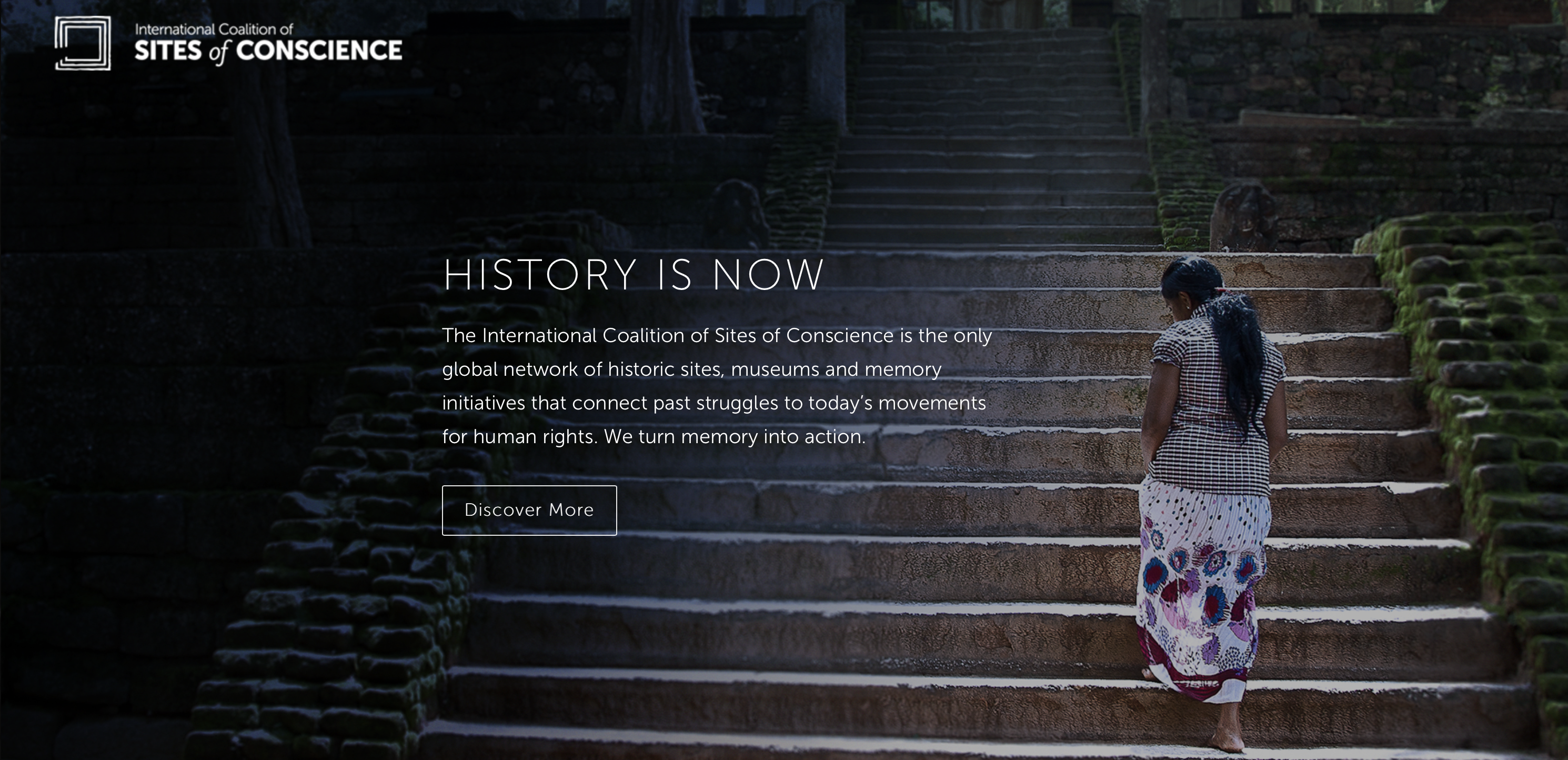
‘How can the past be of practical value in the present?’ It’s a question we historians hear very often. Well, I could argue ‘of very practical value’, but it’s easier to show that significance by introducing you to the International Coalition of Historic Site Museums of Conscience. Ruth J. Abram, the president and founder of the Lower East Side Tenement Museum (New York City), writes in Harnessing the power of history (2002) how she came up with the idea of ”the Coalition”. Like many historic sites, her historic site faced several problems, like fundraising, lack of space and support of her colleagues, but because of this network, she could accomplish her goals – and more than that. Nowadays, the Coalition is a global network of 230 members in 55 countries and their goal is to preserve these historic sites, museums and memory initiatives and let their visitors ‘make a connection between the past and related contemporary human right issues’.
Several examples of special projects of the Coalition:
- The Herstories Archive (2012 – 2013): Mothers who experienced the Sri Lankan Civil War (1983-2009) shared their stories about the war. The project is based on the idea that there shouldn’t be a single, master narrative and the stories of these women are also important for the history of this country.
- The Syrian Oral History Project (2014 – 2015): Enab Baladi and The Damascus Center for Human Rights collected over fifty interviews with Syrian refugees in Syria, Jordan and Turkey. These recordings can be used to raise awareness for the Syrian Civil War, as memorials for the deceased and as an evidence for legal proceedings.
- Digital Mapping and Documentation in the Middle East and North Africa (2016-2017): prisons, checkpoints and former sites of torture are at risk of destruction or deterioration, but members of the Coalition try to find, document and publicize the locations of these places.
Memory plays a very important role in this concept, because the Coalition wants to involve the citizens of the world and inform them about their past, where they are going, what they want to achieve and how they get there. They want to make historic sites valuable, because the lessons of these ‘places of memory’ are powerful.
The need to remember often competes with the equally strong pressure to forget. Even with the best of intentions – such as to promote reconciliation after deeply divided events by “turning the page” – erasing the past can prevent new generations from learning critical lessons and destroy opportunities to build a peaceful future.
According to Abram that’s the implicit power of history and she wants to make that explicit. I think that is a great initiative. It’s important that minorities tell their stories and create their own historic sites so that we not forget these events. Too many times history showed us that the dominant memory culture tried to erase the stories of minorities, because their traumatic memories disrupt groups and societies. Ed Jonker warns in his oration Ordentelijke Geschiedenis: Herinnering, ethiek en geschiedwetenschap (2008) especially for the ‘passive’ victims of war, who did not died in a battle for their country or their honour. Their stories don’t fit in the regular history of ‘active’ victims, because it’s not about winning or losing.
Probably the next important task for them is the refugee disaster along the Myanmar-Bangladesh border in South Asia, where the Burmese military is carrying out ”ethnic cleansing” against the Rohingya. At this moment this Islamic minority face the most gruesome realities in a country where mostly Buddhists live. It’s no surprise that Camil Durakovic, survivor of the Srebrenica-Genocide (11 – 13 juli 1995), already compares these events in Myanmar to the genocide he experienced. Al Jazeera already interviews the Rohingya-refugees and try to document the stories, but it’s important that also the Coalition takes his responsibility as former of the public conscience. Hopefully they can set up a project – just like they did with the Syrian Refugees – where Rohingya-refugees tell their stories. Their stories are lessons to the people of the world. In that way the past is of practical value in the present.

Michiel Sebel